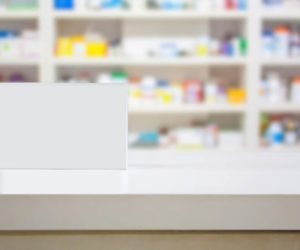CVS Setting Up Drug Disposal Bins to Help Combat Prescription Opioid Abuse

Prescription Opioid Abuse has Reached Epidemic Proportions in the US. CVS is Doing its Part in Helping.
Everyday another story appears in some news publication or website that relates to the opioid abuse epidemic in the US. The severity of the epidemic is evident in the tragic and increased number of overdose deaths each year. Prescription opioid abuse can lead to heroin use for many who become dependent following an illness or surgery. Not every person becomes addicted to prescription opioids, but his or her left over prescription pain pills sitting in a bathroom medicine cabinet can be a temptation to another family member or even a guest.
Prescription Opioid Abuse
Twice as many people in Washington D.C. die from opioid overdose than from homicide. To aid in the reduction of opioids getting into the hands of drug abusers in D.C., three CVS pharmacies will provide disposal bins for unused prescription drugs. Prescription opioid abuse and overdose deaths continue to increase, and the majority of fatalities involve an opioid. One major concern of the medical field is not knowing when the annual death toll will start to decrease. Some researchers believe it may be some years before the opioid crisis reaches its peak in the United States. Over-prescribing of legal pain medications spawned the current opioid crisis, which has grown significantly worse with the influx of cheap illegal heroin and fentanyl. In addition to the government cutting down on the amount of legal pain medications prescribed, it is waging war on drugs flowing in over the border from Mexico and being smuggled in from China.
Prescription Opioid Dependence
Not everyone will develop prescription opioid dependence, and it is never planned when it does happen. Unfortunately the number of people who do become addicted is of epidemic proportions. Prescription opioid dependence leads to addiction, which for many results in an overdose death. In 2016, over fifty-three thousand Americans died from an opioid overdose, and that number is close to eight time the number of deaths of men and women serving in Iraq and Afghanistan since 9/11. Adding insult to injury, many persons addicted to opioids are veterans suffering from post-traumatic stress disorder (PTDS). Dependence develops when the normal dose isn’t providing the user the same level of pain reduction. Another dose is taken sooner than it should be, or the user takes more than the prescribed amount to attain the level of comfort they want. When the brain’s normal activity is disrupted by the presence of opioids, the natural production of endorphins is reduced until the person can no longer “feel good” without the drug to create the desired effect.
Prescription Opioid Abuse Statistics
From 33,091 opioid deaths in 2015 to over 53,000 in 2016, it is apparent the opioid epidemic is overwhelming the US population and economy. Prescription opioid abuse statistics detail a large opioid-caused decline in “prime-age workers” in the labor force, according to former Federal Reserve chief Janet Yellin in her testimony before the U.S. Senate. The state of Ohio has the second-largest number of opioid deaths in the U.S. One Ohio firm reported at least twenty-five percent of its employment applicants fail mandatory drug testing, which resulted in workforce shortages that caused nearly $1 million a year in manufacturing orders going to foreign competitors. Medical costs are also increasing and causing some states to experience shortages in medicaid funding. Overdose deaths from the synthetic opioid fentanyl, are also on the increase and it can require multiple doses of naloxone to reverse an overdose of this highly potent drug.
WhiteSands Addiction Treatment Centers in Tampa and Fort Myers FL, are dedicated to reducing the number of opioid addicts and overdose deaths. Their facilities are staffed with board-certified doctors and psychiatrists as well as nurses and trained addiction counselors. A beautiful and comfortable environment creates a perfect setting for patients to go through detox, rehab, and recovery. Call WhiteSands at (877) 855-3470 and discover what they can do to help you or a loved one from becoming an opioid overdose statistic.
If you or a loved one needs help with abuse and/or treatment, please call the WhiteSands Treatment at (877) 855-3470. Our addiction specialists can assess your recovery needs and help you get the addiction treatment that provides the best chance for your long-term recovery.
